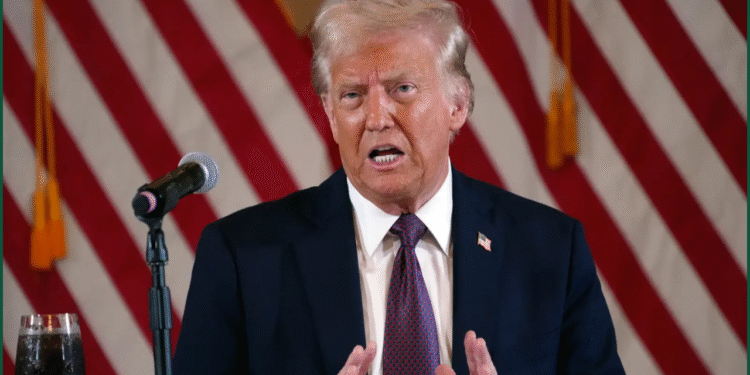On April 26, 2025, President Trump commented on escalating India-Pakistan tensions over Kashmir from Air Force One. He noted the “great tension” but expressed confidence that both nations would resolve their differences independently, without confirming U.S. intervention, following a recent attack that heightened hostilities in the region.
The crisis stems from a deadly attack on Tuesday in Kashmir’s Pahalgam, where 26 men were killed at a popular tourist site. India has attributed the assault to Pakistani involvement, a claim Pakistan firmly rejects. In retaliation, India’s Cabinet Committee on Security announced stringent measures on Wednesday, including closing the Attari land transit point, issuing travel advisories against Pakistan, and suspending the Indus Waters Treaty, a critical agreement governing shared river resources.
Pakistan’s National Security Committee (NSC) responded swiftly, labeling any attempt to disrupt water flow as a potential act of war. The NSC also ordered the closure of the Wagah border crossing, a symbolic and economic lifeline between the two countries. On Friday, Pakistan’s Senate passed a unanimous resolution condemning India’s allegations as “baseless and politically motivated,” further escalating the diplomatic standoff.
The Kashmir region, claimed by both nations, has been a flashpoint for decades, with frequent skirmishes along the Line of Control. The recent attack, the deadliest in nearly 20 years, has reignited fears of broader conflict. India’s decision to suspend the Indus Waters Treaty, in particular, has raised alarms, as Pakistan relies heavily on these waters for agriculture and energy.
Trump, while noting his familiarity with both countries’ leaders, avoided committing to mediation. “There’s always been tension between Pakistan and India,” he remarked, framing the issue as a historical challenge. Analysts suggest Trump’s hands-off approach reflects a broader U.S. policy of avoiding entanglement in the region’s complex disputes.
As diplomatic channels falter, the international community watches closely. The United Nations has called for restraint, urging both nations to prioritize dialogue. With borders closed and rhetoric intensifying, the path to de-escalation remains uncertain, leaving the region on edge.

















































